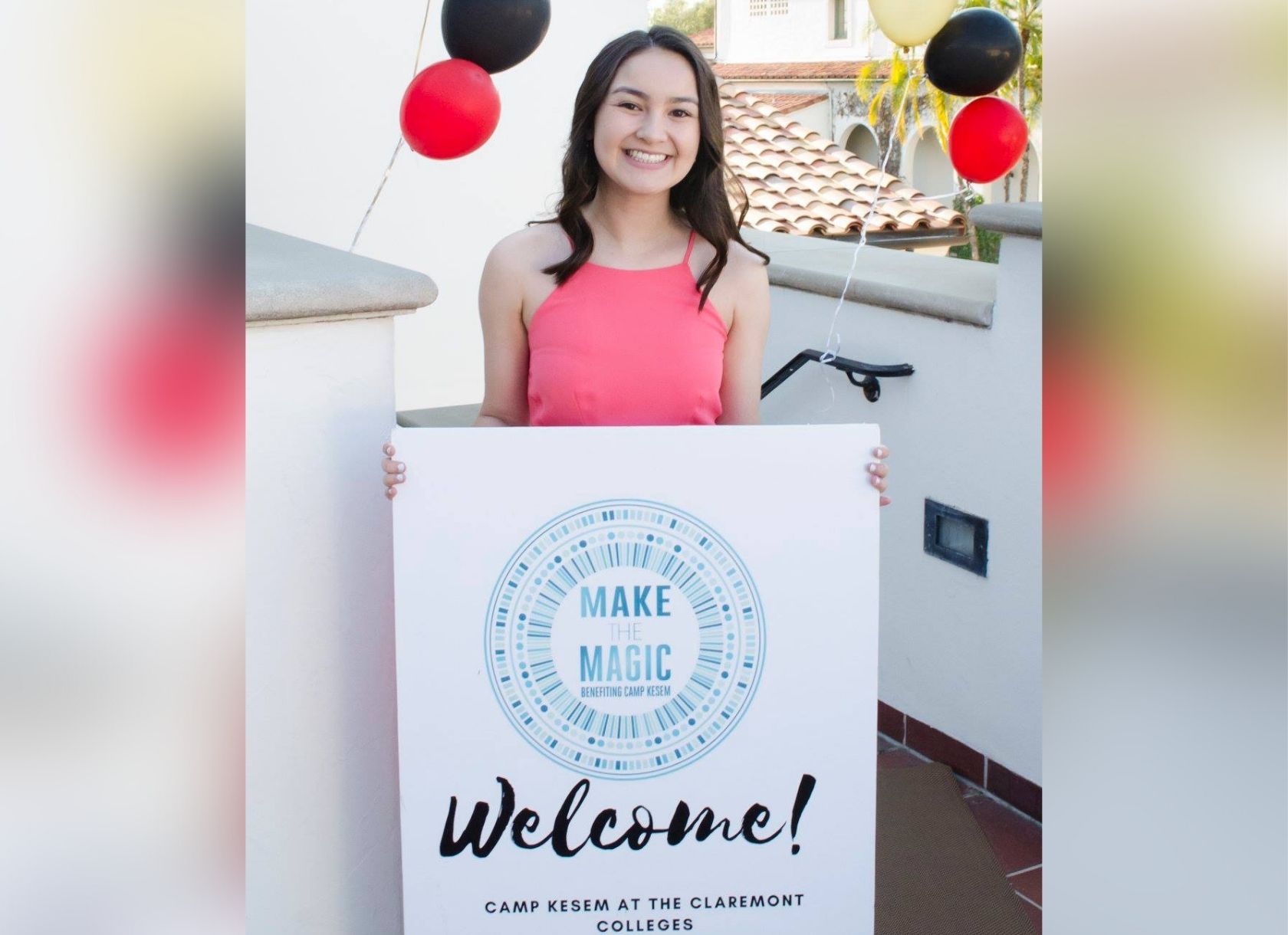By Katie Hanson ’25

With ecstatic campers, a cluster of cabins, and upbeat counselors nationwide, Camp Kesem might look like an ordinary summer camp. But, beneath the surface, there’s a more significant meaning for everyone there. All the campers, and many of the counselors, have had a parent diagnosed with cancer. For them, Camp Kesem is a safe haven.
Camp Kesem is a national organization with more than 130 chapters based at colleges across the United States. During the year, student members of individual chapters work to fundraise for the camp, reaching out to community members for donations and planning an annual event, the Make the Magic Gala. Faculty at the 5Cs, alumni, and local community members form an Advisory Board to oversee the process and support students along the way. Come summer, campers ages six to 18 and counselors from regional colleges will meet at campgrounds in those colleges’ states for a week-long sleepaway camp.
Sonia Malik ’22 is in her fourth year as a student member of the Claremont Colleges Camp Kesem Chapter. Malik has volunteered as a counselor for the past three summers and plans to do so again this year. She also worked as the director of the chapter, overseeing approximately 40 students and the coordinator board, the group of 15 student coordinators who work on fundraising, organizing the Make the Magic Gala, and planning the camp. As a student coordinator this year, Malik says Camp Kesem’s mission and impact remains extraordinary.
“It’s really cool because it’s something you’re both passionate about and it’s something that can challenge you and make you grow as a student,” Malik says. “I know personally I’ve had to do so many things I was uncomfortable with, like going door-to-door in the Claremont Village, fundraising from business to business. But, I think it helped me grow a lot as a person, and it made me realize how much I care about Kesem and how important it is to my life and to the campers.”
The chapter’s extensive fundraising efforts ensure that Camp Kesem is free to all campers, something the group strongly prioritizes. Each of the students involved fundraise individually during the school year, reaching out to friends, family, and community members. The coordinator board tracks the group’s progress and sets larger goals. Once a month, the coordinator board meets with the chapter’s advisory board, which helps the coordinators with finding people to contact, planning the gala, and gaining traction in the community.
Acting Vice President for Academic Affairs and Dean of Faculty Gretchen Edwalds-Gilbert, a longtime member of the advisory board, says she is consistently impressed with the students and notes that they are gaining valuable experience.
“They learn all kinds of organizational skills along the way,” Edwalds-Gilbert says. “They are learning a whole bunch of things about how to raise money. Besides asking family members, how do you go beyond your immediate group, how do you network to let other people know more about it, and how do you plan a big event like a big fundraiser?”
This year’s gala will take place in Margaret Fowler Garden on April 9. The event will connect community members with students, faculty, and families associated with Camp Kesem. Edwalds-Gilbert describes the gala as the “last push” for fundraising. Guests participate in a silent auction and a paddle raise auction, alongside other activities.
Marcy Robinson, assistant director of events and conference services and a member of the advisory board, says the event is a culmination of hard work and community.
“You get first-hand knowledge of the connection with the families because they’re there,” Robinson says. “You really get a sense of community and of the relationships between the kids and the students who are in the chapter. It really is an exceptional program.”
After two years of virtual camp, this summer will mark the return to an in-person camp experience. While virtual camp relied on sending craft kits to campers and hosting Zoom talent shows, this summer’s camp will take place in the mountains and allow campers to stay the night in cabins. Regular camp activities, such as archery and outdoor games, are scheduled. Beyond that, Malik said campers often quickly bond and open up to each other. The counselors are trained to support campers, and the camp has both a nurse and mental health professional for any additional needs.
Edwalds-Gilbert, a cancer survivor, visited the camp in-person several years ago. She says she was moved to see how the camp uniquely supported its participants.
“I could empathize with the kids getting to have a place where they didn’t have to worry about the money,” Edwalds-Gilbert says. “They’re not adding a burden to their family, but they’re going someplace where they don’t have to explain anything—they can just be kids.”

